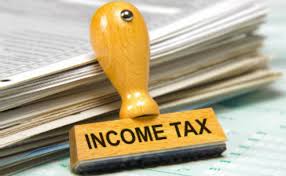In this blog post, Aditi Sampat, Advocate at Nabco Enterprises Pvt Ltd and a student of the Diploma in Entrepreneurship Administration and Business Laws by NUJS, provides details on the e-verification process of income tax returns.
Heads of Income under Income Tax Act
As per Section 14 of the Income Tax Act, all income shall, for the purposes of charge of income-tax and computation of total income, be classified under the following heads of income:
- S – 17 – Salary – Income, under this head, can be taxed only when there exists an employer – employee relationship between the payer and payee.
- S – 22 – Income from house property–Income earned from house property whether residential or commercial is subject to tax under the existing Tax Laws.
- S – 28 – Profits and gains of business or profession –Business or Professional Income earned in a year is subject to Income Tax under this head.
- S – 45 – Capital gains –Profit earned from the transfer of a Capital Asset is chargeable to Tax under this head.
- S – 56 – Income from other sources – Income not falling under the above four heads is taxed under the Income Tax Act under this head.
Filing of Returns under Income Tax Act
Filing of Income Tax Return is mandatory since Return is a conclusive proof of Income earned in a Financial Year. Section 139 of the Income Tax Act mentions the due dates for filing the Income Tax Return for various types of assesses:
- 30th September of the Assessment Year in case of:
- Companies
- Audit Requirement under Income Tax Act or any other Law.
- A working partner of a firm whose accounts require to be audited.
- 31st July of the Assessment Year for all others that is, salaried employees, consultants or self-employed professionals who do not require an audit of their books of account.

As per Section 139(1), every person has to furnish a return of his income on or before the due date, if his total income exceeds the basic exemption limit before the due date. As far as companies and firms are concerned, the return of income or loss should be filed for every previous year on or before the due date in the prescribed form.
Failure to file returns by the due date attracts penalty in the form of interest @ 1% per month on the balance tax payable from the due date to the actual date of filing.
A person who is required to file returns under Section 139(1) of the Income Tax Act, fails to file returns before the end of the relevant Assessment Year, a penalty of Rs. 5000/- shall be levied on the assesse.
How to E-Verify of Income Tax Returns
The Income Tax filing process is not complete unless the Returns are verified. The Income Tax Department has simplified the process of verification by introducing several means to e-verify the Income Tax Returns. The Return can be e-verified by generating an EVC or Electronic Verification Code, a post which, ITR V would not be required to be sent by Speed Post to the Income Tax Department.
The Electronic Verification Code is a ten-digit alphanumeric code which is unique to a Permanent Account Number of a Tax Payer.
The EVC can be obtained in the following ways:
- EVC through Internet banking – The Bank through which the assesse generates the EVC should be authorised by the Income Tax Department. In addition to this, the Tax Payer’s PAN should be KYC Compliant. Through Internet Banking, the Tax payer can request access to Income Tax Department’s website – incometaxindiaefiling.gov.in, and subsequently be able to generate an EVC which will be displayed on the screen and also is sent to the Tax Payer’s registered mobile number. Post which, the Tax Payer can e-verify the Income Tax return with the EVC generated.
- EVC through Aadhaar One Time Password – Verification of the Income Tax return can be done by linking the Aadhaar Card to the PAN Card on the Income Tax Department’s website – www.incometaxindiaefiling.gov.in. Post authenticating the Aadhar and linking it to the PAN Card, a One Time Password will be sent to the tax payer’s registered mobile number. The One Time Password which is valid only for ten minutes can be used to verify Income Tax Return.
- EVC through ATM – It is required that Banks should be registered with the income tax department for providing the service of generating EVC through ATM. EVC through the ATM can be generated by logging into the bank account through the ATM and selecting option ‘Generate EVC for income tax return filing’. The bank’s systems will request the income tax department’s website to send the EVC to the taxpayer’s registered mobile number which can then be utilised for verifying the Income tax return.

- EVC though the Income Tax Department website (www.incomeindiaefiling.gov.in) – In cases where the tax payer’s gross total income after deductions is Rs 5 lakhs, or less and also no refund is due to the tax payer, EVC can be generated from the Income tax department’s filing website. The EVC, in this case, shall be sent to the registered email id and mobile number of the taxpayer.
- Physical ITR-V – if any of the above methods fails, then the Income Tax Return can be verified by taking a printed copy and sending it by Speed Post. The Taxpayer ought to sign the same and send it within 120 days of e-filing the Return.
[divider]
References:
- Income Tax Act 1961 – Bare Act.
- http://www.moneycontrol.com/news/tax/here-is-how-you-e-verify-your-income-tax-return_2070021.html
- http://www.moneycontrol.com/master_your_money/tax/article.php?autono=736313
- https://incometaxindiaefiling.gov.in/eFiling/Portal/StaticPDF/e-Verification_User_Manual.pdf
- http://incometaxmanagement.com/Pages/Tax-Management-Procedure/4-2-Time-Limit-For-Filling-Return-Of-Income.html
 Serato DJ Crack 2025Serato DJ PRO Crack
Serato DJ Crack 2025Serato DJ PRO Crack










 Allow notifications
Allow notifications


